She’s most likely on her period!”
How regularly have you heard, or overheard, this word? Even in apparently progressive societies, it’s really usual for men to reject women’s thought, ideas or anger basically on the basis of their ability to bleed monthly. The notion behind this is that periods in some way make you unpredictable, dangerous, or completely crazy. According to some cultures, women are assumed to destroy harvests, spoil milk, or ruin pickles while they are on their period.
However, the fact that your hormones change monthly doesn’t make you less of a level-headed or skilled person. Fluctuations in energy, mood and feeling al through your period are completely okay; if you learn to identify and handle them; you can as well enhance your natural gifts and skills.
To make use of your “period power,” you only need to get accustomed to the science behind your menstrual cycle, and also the strengths and difficulties that come with each stage. By knowing how to go with the flow – quite factually – then you will have the ability to access a power you weren’t aware you had.
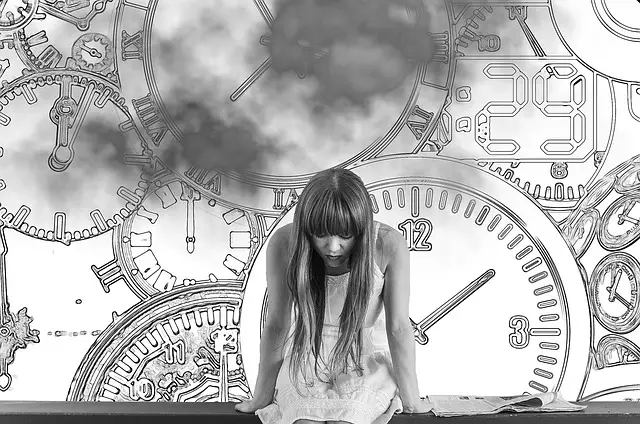
Chapter 1 – Your menstrual cycle is controlled by the ebb and flow of the hormones known as estrogen and progesterone.
If you wish to make the most of the power of your period, you have to first know what the heck is happening with your body monthly. Let’s begin with the fundamentals. Your womb or uterus is the star of your menstrual cycle. It is found inside of you, on top of your vagina, and it looks like an upside-down pear with two arms in which these arms are your fallopian tubes. Your ovaries are found at the end of each fallopian tube, which comprises of cell clusters, known as follicles, that have your eggs.
At the start of your cycle, your brain tells your ovaries to begin releasing follicle-stimulating hormone, or FSH. FSH assists the follicles to choose and prepare an egg to be fertilized, which is the reason why this first half of your cycle is known as the follicular phase. As the egg matures, levels of the hormone estradiol increase. Additionally, estradiol is a kind of hormone estrogen that allows the inner lining of your uterus to thicken for it to get it ready for accommodating a baby.
Your egg is released by the follicle when it is “good to go.” This occurrence is known as ovulation, and aside from period, it’s one of the two essential instants of your menstrual cycle. If sperm is in the vagina during the time of ovulation, the egg can be fertilized, and you can fall pregnant. Sperm can stay in the vagina for nearly five days, and a released egg remains for up to 24 hours; for you to conceive, you’ll need to have sexual intercourse a few days before, during, or soon after ovulation.
After the egg is released, the follicle that released the egg changes to a temporary gland known as the corpus luteum, which begins releasing the hormone progesterone. Progesterone dominates the second half of your cycle which is the luteal phase. This phase is present to assist your body to slow down and recover in case of pregnancy.
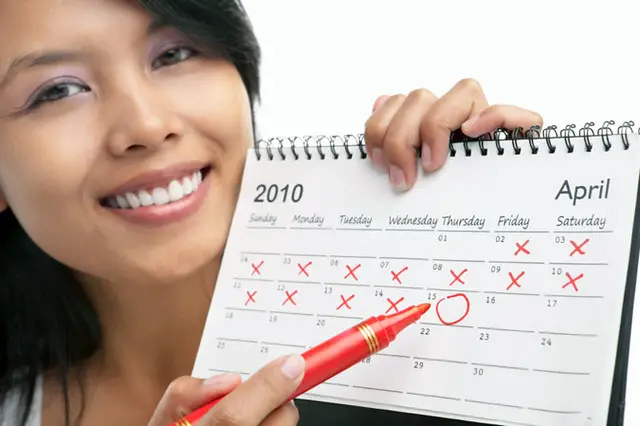
But if the egg is not fertilized, the corpus luteum can just release progesterone for around 14 days. Afterward, the levels of progesterone and estradiol dip and the fall make the cells of your uterine lining to die and decrease.
This is what is released from your vagina as your menstruation: a flow of blood and some tissue that normally lasts for about three to seven days. Immediately you see your period, your menstrual cycle starts afresh. In a textbook cycle, this would occur after 28 days –however, a healthy cycle can last between 25 and 35 days.
Chapter 2 – Menstrual tracking will assist you to take control of your hormonal safety.
Hormones such as estrogen and progesterone don’t only say to your uterus what to do. They affect your mood and action in different manners, controlling your sleep, appetite, energy, and libido. As a matter of fact, hormones don’t only affect menstruators – they rule every one!
Since your menstrual cycle has an ebb and flow of hormones, the mental and physical changes you feel all through your period can feel somewhat severe.
The various phases of your menstrual cycle are just the seasons of the year; each comes with it a different set of strengths and challenges. Your period, which is when you retreat from the world and rest, is just like winter. Spring comes after that which is when your mind and body start afresh. You’re in summer during your ovulation which is the time you feel light and energetic. Lastly, before your period, you get into fall the fall phase to slow down and prepare for winter again.
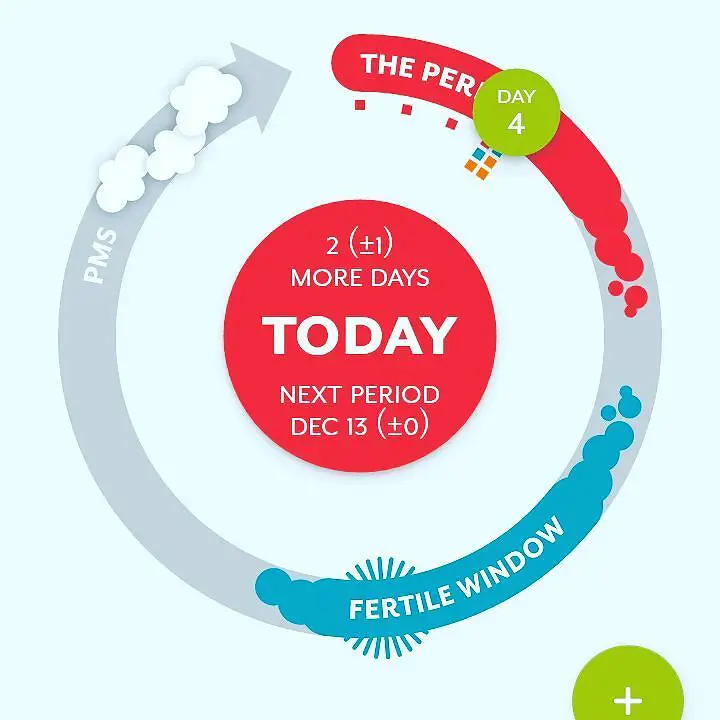
Your menstrual cycle and the length and experience of every season are extremely sensitive to changes going on in your life. Stress from work, poor diet, relationship problems, and sicknesses are only some of the things that can upset your hormone. Due to that, your cycles might be really long, really short, or really irregular.
When your menstrual cycles are out of order, it’s an indication that something in your body or your life is not going well. However, tracking your cycle –which is one of the most unrecognized and underused tools – can assist you to take control of both your mental and physical health. All you have to do is to get a pen and paper.
Menstrual tracking can be as easy as writing down a few words every day. Some important things to jot down are mood, sleeping time, headaches, energy levels, pain, appetite, libido, or digestion–however, you can modify your data as you want. For instance, jot down the way your feeling is about your relationships, the food you’re craving at the moment, and which work feels really difficult today. Period apps like Clue and Kindara are other easy methods to keep track of your cycle.
As soon as you’ve tracked a complete cycle, you’ll be able to know how your energy and mood energy altered al through it. Also, after tracking a few more cycles, you will not just be able to know when your next period is about to start– you’ll also be able to prepare for changes in energy, mood, and feelings too.
Chapter 3 – Your period is just like winter: a time of inward concentration, rest, and relaxation.
The first day of your period is your first menstrual cycle. That is winter which is the season of death and rebirth.
Close the beginning of your period, your hormones reduced to their lowest levels. Together with having to handle that whole blood coming out of your vagina, this can make you feel exhausted, emotional, and nervous. As your body produces natural pain-relieving hormones like oxytocin and endorphins, you might even see yourself experiencing a little high – “menstrual tripping” is a real situation!
Since it’s really an intimate, introspective, and private time, winter has the chance for profound understandings and deep discoveries. Say you’re already making use of a menstrual tracking, this is when you can assess your former cycle and have targets for the new one. How did your mood change during the previous cycle? Where did you find it hard the most? How can you prepare for your following period more better, so you’re not having a birthday party of shouting kids just as your energy levels are close to dropping?
Use winter as your hint to withdraw from the world, take time to rest, and free anything that worried you in your last cycle. It’s a good chance for you to rest from social media, exercise, and work duties as much as possible – and rather sit on the sofa with a good book.
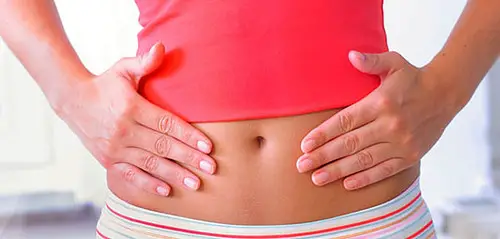
Menstruations are not the flowery spa resort that tampon commercials would make you assume. Periods can get messy, difficult, and completely unpleasant.
If you’re part of the several women who have menstrual cramps, try using some home remedies before taking Ibuprofen. Heat, light exercise, and abdominal massages have shown really effective in minimizing period pain. Masturbation as well can help reduce the pain; it frees tension and enhances feel-good hormones in the brain.
The kind of product you use for your period can as well influence your period experience. The author suggests menstrual cups because they can hold more blood, are lower in chemical additives and have less environmental effect than disposable pads and tampons.
From the third day of your period– when the heaviest flow is normally behind you – your hormone levels will gradually begin to increase again, and you will feel really energized and motivated. Shortly, you’ll see yourself in spring.
Chapter 4 – You go into spring after your period, which is a time of playfulness and opportunities.
The change from winter to spring is a satisfying one for the majority of us, as we sense our energies rising and our mood enhanced.
Now, your ovaries are busy choosing and preparing the egg to be fertilized, and your estradiol increase to get you prepared for ovulation. Positivity and motivation come back, and you’ll feel playful, energetic and light.
During spring, the world is has a lot of possibilities. Be curious, and explore. This is the ideal period to attempt something new –maybe it’s a clothing fashion, an exercise habit, or a way of working. Change is normally very easy during spring; therefore, routines you begin now are probably going to stick.
Also, it is a perfect period to go for dates. Estradiol clears up your skin, which can allow you to feel more beautiful, and it makes your cervical and vaginal juices flowing.
But, be cautious not to get ruined in these whole possibilities. Allow the energy form a bit, and keep some of your remarkable new thoughts close to your mind until you’ve had time to ponder on them.
Although, at times spring doesn’t bring the spark and lightness usually related to it; there could be numerous causes for this. Maybe you hurried out of winter, burning the candle at both ends immediately you felt your hormones increasing. Or maybe you have an iron deficiency, which allowed losing that whole blood in winter very tiring.

A different cause for that could be that your body is not releasing adequate estradiol. Over-exercising, dieting, and becoming older can lead to low estrogen levels. During this season of your cycle, if you’re tired or depressed– or if your cycles are really irregular –think of whether and why you might have an estrogen deficiency, and go to a trusted healthcare professional to fix it.
Consider the author’s client, Laura, who consulted the author because her cycle had become very irregular –at times going for as long as three months. After their discussion, they decided that the changes had started when Laura began CrossFit and changed to a severe low-carb diet a year before. The author recommended that Laura abide by yoga for a few months and add more complex carbs to her diet. And only after three months, Laura’s estrogen levels were back to normal, and her cycles had gotten back to a healthy period of 32 days.
Lastly, Laura eventually enjoyed the spark of spring once again.
Chapter 5 – During ovulation, summer enhances your mood and energy.
For the majority of us, life feels very easy in summer – and the same applies when we talk about your menstrual cycle. Summer is the time just before, during, and after ovulation.
Before ovulation, estradiol gets to its highest, producing luteinizing hormone and testosterone. Testosterone is usually mischaracterized as a “male” hormone; however, it has a significant part to play in female reproductive health as well, enhancing your energy and sex drive.
In the extremely hormonal time during ovulation, you are full of confidence and sex appeal. Your need for food and sleep are decreased, you are more outgoing, and most significantly, you’re really horny.
Definitely, your hormones are going to this process just to make you warm up. They want you to go into the world, talking with possible mates. The blood flowing to your genitals rises and your cervical fluid becomes stretchy and slippery –just like the flexibility of an egg-white –allowing this to be a really good time to have sex. In a nutshell, summer is the perfect time to plan dates or revive a romance with your partner.
Also, you can make use of your summer’s energy for many things aside from sex. It is a great time to do almost anything big, bold, and public – from meeting significant clients to saying speech at a wedding, to planning a protest.

But, if you’re not experiencing summer’s high, it might be an indication that you didn’t ovulate. Getting the supposed anovulatory cycles occasionally in completely normal; however, if you experience it regularly, there might be a hormonal problem. Bear in mind that your menstrual cycle is really sensitive to sickness, stress, and shock. If you didn’t eat well during your previous last cycles or have been regularly overworked, your body might decide that this is not a good time to become pregnant and stop ovulation for a few cycles. Disorders like polycystic ovarian syndrome (PCOS); that is, painful cysts develop on your ovaries, can disrupt your ability to ovulate as well.
One reliable method of knowing if you’ve ovulated is to track your basal body temperature or BBT. Just before ovulation, your body temperature has to be around 36 to 36.5 °C. And after ovulation, it increases by 0.2 °C as a result of the heating effect of progesterone. If you detect your temperature increase around the fourteenth day of your cycle and remain high for a bit, you’ve ovulated. This entails that if you track your BBT thoroughly and have consistent cycles, you can even make use of it as a contraceptive plan.
Chapter 6 – Just before your menstruation, fall urges you to slow down and assess your life.
For the majority of us, after the high of summer is, there is somewhat of a wreck in fall. You feel sad, bad-tempered, and exhausted all of a sudden. Now your body is urging you to slow down and retreat– maybe because there is a baby there already, or because it needs to prepare to do everything all again.
Some people might be really fortunate to feel an “Indian Summer” after ovulation when the levels of estrogen and progesterone increase a bit once more. However, in the week before we menstruate, when hormones reduce quickly, the majority of us struggle with our energy and mood. At the moment, you may feel some or the entire approximately 150 symptoms of PMS, or premenstrual syndrome, which entails fun things such as teariness, anxiety, headaches, bloating and constipation.
This can be the time when you get the maximum “data” for your menstrual tracking. Take note of how you feel every day, and attempt to know when the change from summer to fall happens for you. According to a textbook 28-day cycle, it normally occurs about day 20 or 21.
As the comforting effect of estradiol decreases, you’ll be able to identify well which parts of your work and relationships don’t work for you. Also, this season is when your inner critic is loud the most. Don’t allow her to turn into a bully. Rather, attempt to see the kernel of truth in her nagging and complaining. Is your boss only demanding a lot of you? Is your partner truly worthless? Do you have to improve at saying no? It is the time to trust your gut, clean up your life, and leave your losses.
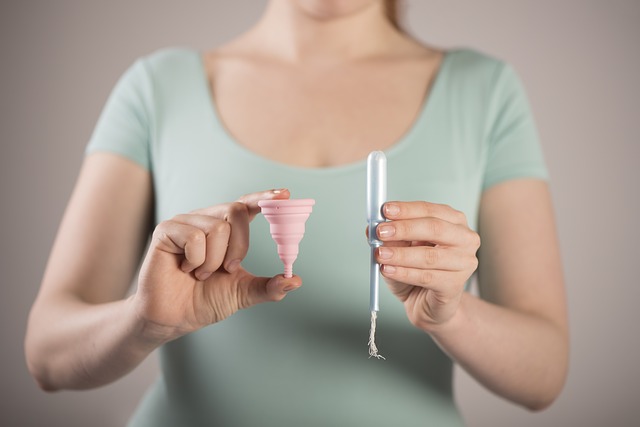
The less stress you experience and the more self-care you can put into this season, the better. You have short energy for working, socializing and working out; therefore, attempt to complete the most significant tasks first.
Fall can be a hard season; however, it shouldn’t be total suffering. If you have severe PMS or really heavy or inconsistent cycles, it could be an indication of low progesterone. Progesterone levels are lowered by things such as nutritional deficiencies, stress, hypothyroidism, and aging.
Your health practitioner can assist you to know and check your progesterone levels. Tell them that if your cycle is shorter or longer than normal, they have to test on the exact day of your luteal phase.
Chapter 7 – Experiencing puberty, pregnancy or menopause will affect how your hormones flow.
Your hormones grow with you. As you become older and change, your menstrual cycle will also age and change.
The first time you see your period, your menstrual cycle can be a little wild ride. Averagely, you will start your period around the age12 or 13. Even though you already bleed frequently, it can take a little bit of time for you to ovulate – our ovaries require the practice to form a “good” egg. Your body is still becoming accustomed to things, and your hormones might be a little unbalanced. Your menstrual cycle may be shorter or longer, and your period might be lighter or heavier, than what is regarded as “normal” for adults.
Pregnancy is another obvious time of huge hormonal change, which as well works in seasons. Say an egg has been fertilized, your body continues releasing progesterone and offers you a prolonged winter. This offers you time to slow down and change in the first trimester of your pregnancy.
As you go on to your second trimester, spring increases your appetite and libido, moving you forward into an energetic summer and you can still go around. As fall comes close and you’re getting prepared to deliver, you’re probably going to feel moody and tired. Lastly, delivery begins another winter. After birth, it’s significant to have all the rest and assistance you require, as new mothers are particularly susceptible to mental health problems, adrenal imbalances, and thyroid dysfunction. Check-in with yourself, and get all the assistance you can get.
Menopause, or rather the time before menopause– perimenopause – is the last hormonal experience your body will put your through. As your menstrual cycle reaches a stop, usually around the age of 50, you may feel insomnia, mood swings, hot flashes, and vaginal dryness. Your capacity to ovulate reduces, your hormones shoot all around the place attempting to compensate, and your periods may get really irregular before ending totally.

The good thing is, with your estrogen levels decreasing, you’ll see yourself worrying less and less about what others think of you–therefore, take this as a chance to become the no-nonsense powerhouse you usually wanted to be.
You can anchor yourself through any change – maybe it puberty, menopause or pregnancy, – by tracking your cycle. Also, as we’ll learn about in the following chapter, a healthy diet, proper sleep, and exercise can do miracles for your menstrual health, regardless of what phase of life you see yourself in.
Chapter 8 – A healthy way of life can assist you to balance your hormones and relieve the darker seasons of your cycle.
There are a lot of things to do in order to manage your cycle and enhance your menstrual health. the majority of the changes will appear naturally to you as you track your cycle and get accustomed to your specific moods, behaviors, and quirks.
Many of the menstrual health clues are really direct. A food that is rich in nutrients from vegetables, proteins and healthy fats will boost digestion and assist your hormones to remain on track. Say you suffer from PCOS, reducing sugar, gluten and dairy will be particularly significant to making your conditions better
Another good method to enhance your immune system and hormone production is through exercise. Also, it enables you to sweat out surplus estrogen, which can be beneficial if you feel that you suffer from “estrogen dominance,” which is a very common condition in perimenopause.
Another huge aspect of hormonal health is sleep. Only a single night of bad sleep can ruin your blood sugar and increase levels of the stress hormone called cortisol, which will then suppress the secretion of estrogen and progesterone. In order to prevent that, target about 7 to 9 hours of sleep every night
Not really obvious, you might have to think of your type of contraception. Hormonal contraceptives such as the pill function through synthetic hormones that suppress your natural hormonal cycle and hinder ovulation. In current years, hormonal contraceptives have been associated with vital health problems like depression, inflammatory bowel disease, and pain during sex. Also, the pill’s negative consequences spread well beyond its use. A study discovered that long-term pill use permanently reduced the thickness of the uterus lining, a significant factor in your ability to conceive.
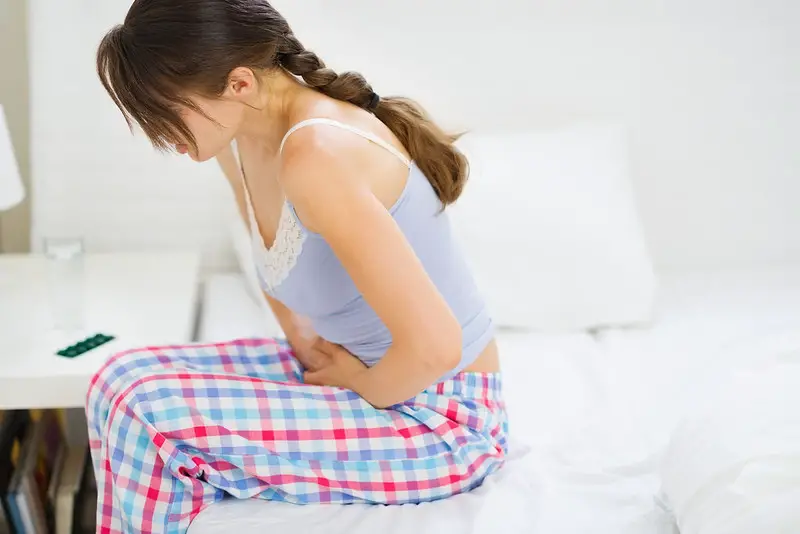
Though many health practitioners fail to tell their patients about the negative effects of hormonal contraception, these are important to take into consideration when choosing a contraceptive. Your menstrual cycle doesn’t have to be a weight to eliminate through hormonal contraceptives; however a source of joy and power. But you can work on regulating your cycles will lifestyle modification and with the assistance of a trusted healthcare professional, it’s worth a try.
As you’ve understood in this book, following the natural flow of your menstrual cycle can be a fundamental act of self-care. By assisting you to know your own patterns, mistakes, and strengths, it will assist you to survive in every stage and aspect of your life.
Period Power: Harness Your Hormones and Get Your Cycle Working For You by Maisie Hill Book Review
Since your hormones are susceptible to sickness, stress, and life changes, your menstrual cycle is a sign of your general health and well-being. Tracking it can assist you to know when in your cycle you flourish and find it hard, and how to change your life to fit your energy and feel better. The phases of your cycle relate to the four seasons: Your period is winter which is a time you rest and reflection. As your hormone levels increase again, spring offers new energy, getting to its peak during your ovulation, and that is your summer. Your energy and mood reduce again just before your period in fall, a time when it’s particularly significant to take care of yourself.
Take homemade castor oil packs to relieve menstrual pains.
If you have period pains, castor oil packs can be an easy and natural method to relieve cramps. The only thing you require is a piece of cotton or wool flannel, castor oil, and a hot water bottle. Also, you might want to have some old clothes and towels, as the process can get a little untidy. Allow the flannel soak in the oil till it becomes completely saturated, and put it on your abdomen and place a hot water bottle on top. Put it there for about 30 to 60 minutes, and your cramps should get better. Later, you can massage the remaining oil into your skin.
Download Pdf
https://goodbooksummary.s3.us-east-2.amazonaws.com/Period+Power+by+Maisie+Hill+Book+Summary.pdf
Download Epub
https://goodbooksummary.s3.us-east-2.amazonaws.com/Period+Power+by+Maisie+Hill+Book+Summary.epub
